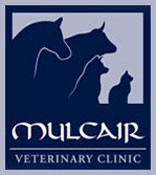Neutering is a routine operation, performed under general anaesthetic. It usually involves just a day spent at our veterinary clinic. We recommend that you neuter your pup at around 6 months of age. Neutering increases your pet’s chances for a longer, healthier life. Please Contact Us to book in your pup for neutering or for further information.
What does the term ‘Neutering’ mean?
‘Neutering’ is a term used to describe the surgical procedures used to prevent pets from reproducing. It can be used for both male and female pets. ‘Spaying’ is the term sometimes used to describe neutering a female and consists of removing the uterus and ovaries- the technical term is ovario-hysterectomy. Neutering of the male animal is often called “castration” and involves the removal of the testicles.
Why should I neuter my dog?
- Neutering increases your dog’s chances for a longer, healthier life.
- A spayed bitch will not come into season again, and so will not become pregnant.
- Spaying eliminates the threat of uterine and ovarian infections that are very serious and life threatening.
- Spaying your bitch reduces her chances of developing mammary cancer.
- Spaying your female dog eliminates the problem of stray dogs camping out in your garden during your bitch’s twice annual heat period and decreases her desire to roam and breed.
- Spaying prevents your bitch from giving birth to unwanted puppies. It also stops the messy and difficult biannual heat period. You are helping to alleviate the dog and cat over population problems we have in Ireland.
- Neutering your male dog prevents testicular cancer and may prevent prostate problems.
- As well as making your dog less likely to stray, dog’s tend to be less aggressive and less likely to fight, and often more amenable to training.
Does it hurt?
As the surgery is done under a general anaesthetic it is painless. The operation for both males and females is straightforward and low risk. Recovery is usually uneventful. The worst your pet might experience is some discomfort for a short time after the operation.
When should it be done?
The usual recommendation is at 6 months for dogs but your dog can be neutered at any stage of his or her life. Your vet should be consulted to determine the best time for neutering.
How long will my dog be at the vets for neutering?
It usually involves just a day spent at our veterinary practice, and he/she will have to return in 10 -12 days for removal of stitches at which point he/she will be fully recovered.
What happens when my bitch comes into heat?
The average female dog comes in “heat” twice yearly. This may last for3 -4 weeks. During this time, a bitch is ready for mating and pregnancy may result. As well as being messy and inconvenient, she will need to be kept apart from male dogs for the duration to prevent unwanted puppies.
Excuses for not neutering:
My dog will get fat or lazy Dogs that become fat and lazy after being neutered are usually being overfed and under exercised. Neutered dogs will not put on weight as long as they are fed sensibly and exercised regularly.
Shouldn’t a female dog have one litter first? Allowing a female to produce a litter does not have any benefits. There are health risks to the mother during pregnancy and when giving birth. Finding good homes for puppies and kittens is not easy.
Spaying and Neutering isn’t natural Humans domesticated animals and brought them into our lives. The environment we and our pets live in is very different from the “natural” one. We have made them dependent on us, which means we are responsible for their well being.
We can sell the litter and make money Even well known breeders are fortunate to break even on raising purebred litters. Vaccinations, health care costs and feeding consume most of the profit.
I am concerned about my pet undergoing anaesthesia Although there is always a slight risk involved, anaesthetics used by vets are very safe. The medical benefits of having your pet neutered or spayed far outweigh the slight risk involved with undergoing anaesthesia.

